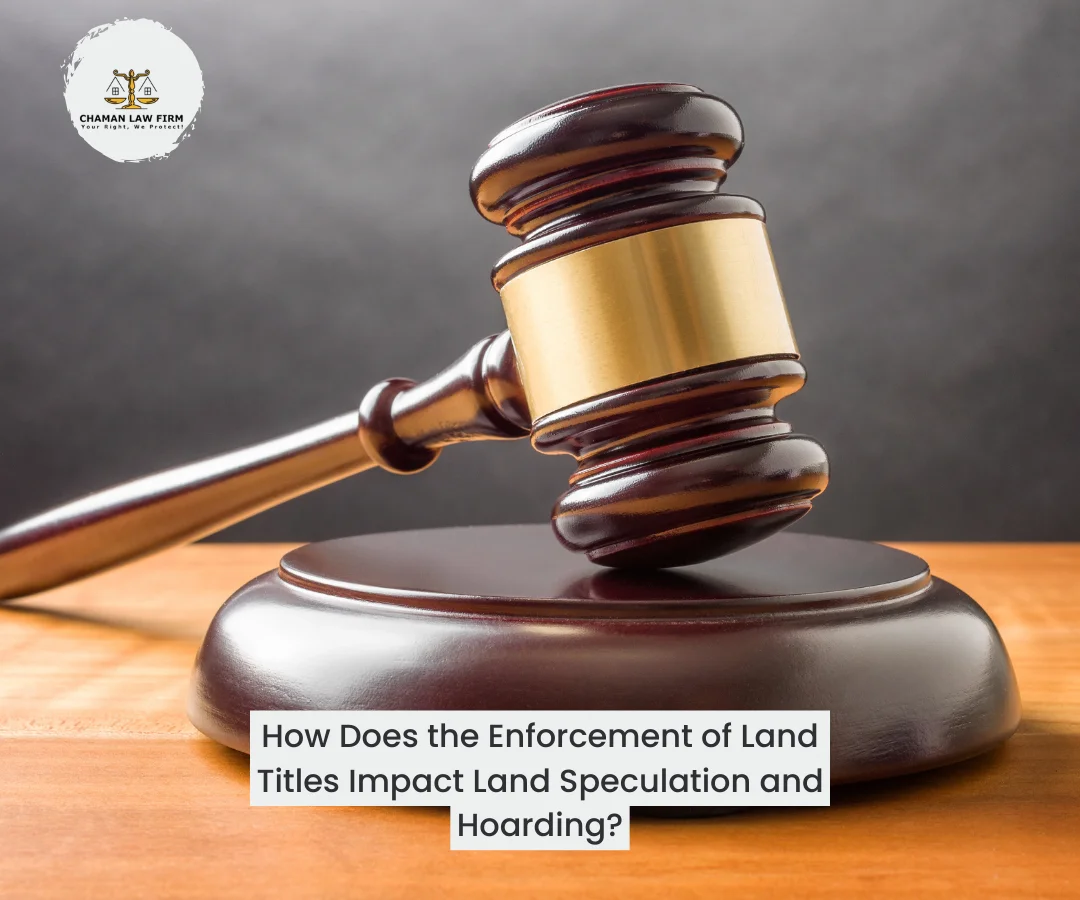How Does the Enforcement of Land Titles Impact Land Speculation and Hoarding?
Introduction
Land speculation and hoarding can have detrimental effects on land markets, urban development, and housing affordability. The enforcement of land titles plays a crucial role in addressing these issues in Nigeria.
Understanding Land Speculation and Hoarding
Land Speculation: This refers to the practice of buying land with the expectation that its value will increase over time. Speculators often hold land without developing it, waiting to sell at a higher price.
Land Hoarding: This involves acquiring large land parcels and keeping them off the market, which can lead to artificial scarcity and increased land prices.
The Impact of Land Title Enforcement
Ownership Verification: Land title enforcement verifies property ownership, reducing ambiguity and the potential for speculative practices.
Taxation: When land is left undeveloped, property taxes often increase. Enforcement of land titles encourages landowners to develop or sell the land to avoid higher taxes.
Market Transparency: Clear and enforced land titles lead to more transparent land markets, discouraging speculation.
Challenges and Implications
Land Grabbing: Some individuals or entities may use land titles to legitimize land grabbing, affecting local communities.
Affordability: While enforcement can discourage speculation, it must be balanced to prevent escalating land prices, which can hinder housing affordability.
Policy Implications
Progressive Property Tax: Implementing a progressive property tax can incentivize landowners to develop or sell their land, thus reducing hoarding.
Anti-Land Grabbing Regulations: Enforcing regulations against land grabbing while protecting legitimate landowners is essential.
Affordable Housing Initiatives: Investing in affordable housing can mitigate the impact of rising land prices on housing affordability.
International Comparisons
Singapore: Singapore’s land title enforcement policies effectively prevent land hoarding and encourage land development, contributing to the city-state’s urban success.
USA: Zoning regulations and property taxes in the USA discourage land speculation and promote responsible land use.
- The enforcement of land titles significantly influences land speculation and hoarding in Nigeria. Proper enforcement creates a transparent and predictable property market, reducing fraudulent transactions and discouraging speculative practices that artificially inflate land prices.
Speculators often acquire large portions of land in anticipation of future price increases, sometimes leaving them undeveloped for years. When land title enforcement is weak, these speculators exploit loopholes, purchasing land without proper documentation or even reselling disputed properties. However, strict enforcement—through registration requirements, regular verification, and adherence to legal frameworks—limits such activities by ensuring that only legally acquired land can be transferred.
A well-enforced land title system also deters land hoarding. Investors and individuals who hoard land typically do so to manipulate market prices, waiting for increased demand before selling at a premium. However, strong enforcement policies, such as taxation on undeveloped lands or revocation of rights for non-utilization, compel landowners to develop or sell their holdings. For instance, under the Land Use Act of 1978, the government retains the power to revoke titles for overriding public interest, discouraging unnecessary land hoarding.
Moreover, judicial precedents, such as Ogunleye v. Oni (1990), reinforce the importance of valid title registration in land disputes. Courts consistently uphold the rights of registered titleholders, making speculative transactions on undocumented lands riskier.
Conclusion
The enforcement of land titles is a powerful tool in curbing land speculation and hoarding. When implemented thoughtfully and supported by complementary policies, it can foster a fair, efficient land market that benefits both property owners and the broader community, ensuring that land is used for productive purposes rather than as a speculative commodity. Strict enforcement of land titles reduces speculative activities and discourages land hoarding by ensuring clear ownership, preventing fraudulent transfers, and promoting land development. This fosters a more stable and accessible real estate market, benefiting investors, buyers, and the economy at large.
WRITTEN BY CHAMAN LAW FIRM TEAM
Email: chamanlawfirm@gmail.com, info@chamanlawfirm.com
TEL: 08065553671, 08024200080


